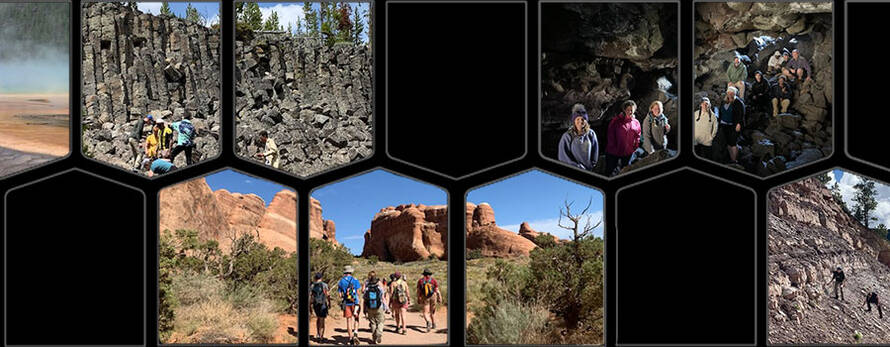Geology - The Scientific Study of the Earth

Spring 2026: What's new in Geology @ MCC?
- GEO 101/Physical Geology explores Earth's resources (water, minerals, energy, etc.), hazards (volcanoes, earthquakes, landslides, etc.), composition (rocks, mountains, glaciers, etc.), and has field trips (during lab meetings & transportation is provided)! Geo 101 fulfills the SUNY Natural Science Gen Ed requirement and is offered on-campus, as well as online.
- GEO 109/General Astronomy explores the solar system, planetary geology, stellar evolution, celestial models, and constellation identification. Students will gain valuable experience in observational techniques and data analysis, fostering a deeper understanding of the cosmos and the scientific methods used in astronomy. Geo 109 fulfills the SUNY Natural Science Gen Ed requirement and is offered on-campus, as well as online.
- GEO 102/Historical Geology explores the history of Earth and life through time. It addresses the Earth's origin, evolution, changes in the distribution of lands and seas, growth and destruction of mountains, succession of animals and plants through time, and the developmental history of the solar system. Prerequisite is GEO 101.
What will I learn about in MCC geology courses?
MCC Geology students can study volcanoes, minerals, rocks, fossils, oceans, stars, planets, natural disasters, mountain formation, water resources, local and global landforms, and how all of these are connected to humans, society, and the environment.
Where can I learn geology?
MCC offers geology courses that allow students to learn in the classroom (on-campus, remote, and/or online) and also in the field - which can be anywhere from an outcrop of 450 million year old rocks along the Genesee River to a wind and solar farm along the Lake Ontario shoreline to the slopes of the Adirondack Mountains to the supervolcano in Yellowstone National Park!
How can I start my geology journey?
Enroll in Geology 101 - Physical Geology on-campus or online!
From there, pursue the A.S. in Geology and/or take any additional geology courses of interest offered at MCC.
What can I do after MCC?
Many MCC Geology A.S. graduates transfer to complete a Bachelor’s degree. Upon completion of their undergraduate degree, they are then are employed in the environmental industry, resource exploration, hazard assessment, education, and many additional career paths.
Location & Contacts
Jessica Barone
Department Chair
Brighton Campus
Building 8, Room 214
M thru F, 8:45am to 4:45pm
(585) 292-2448
jbarone@monroecc.edu

